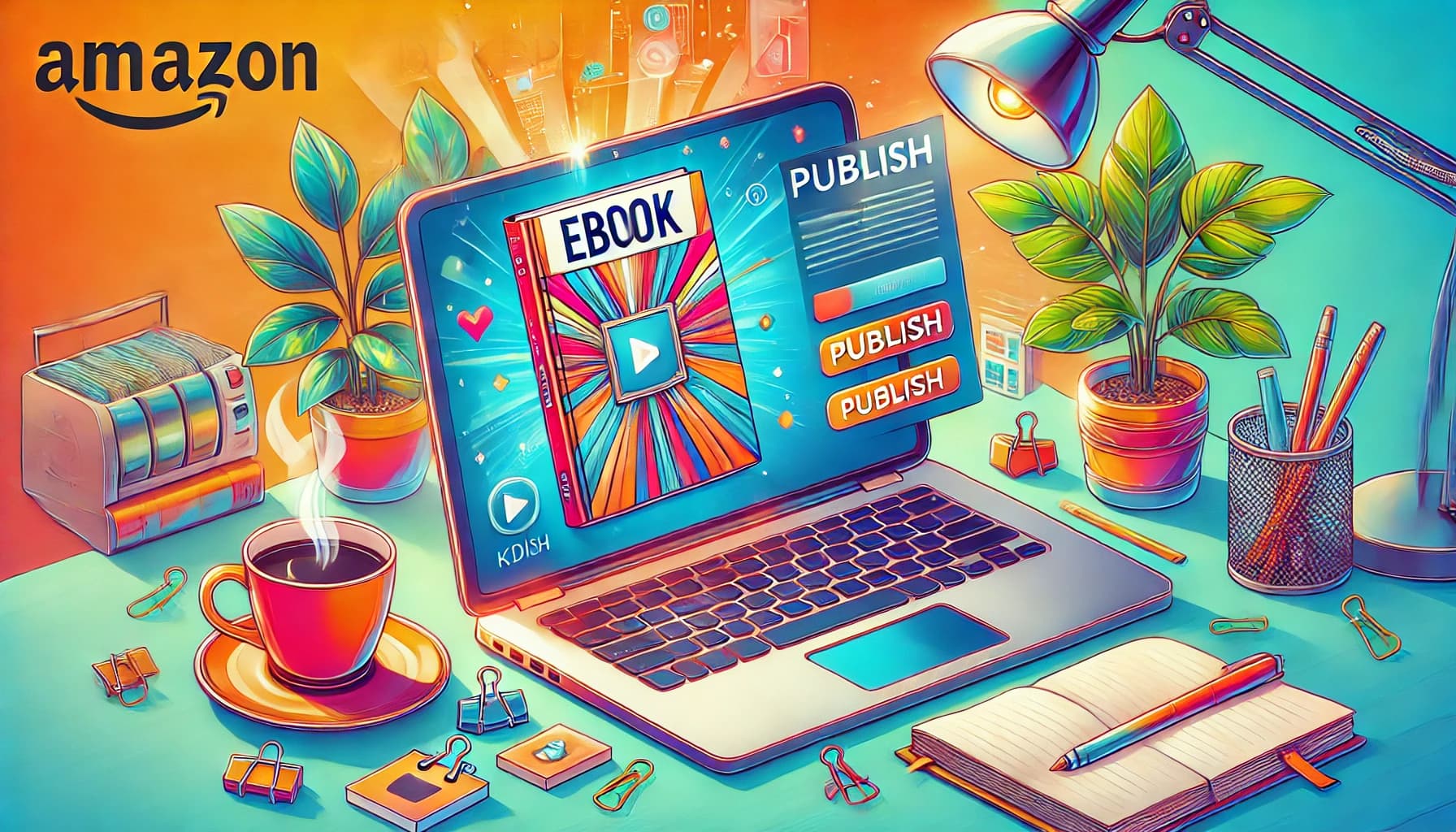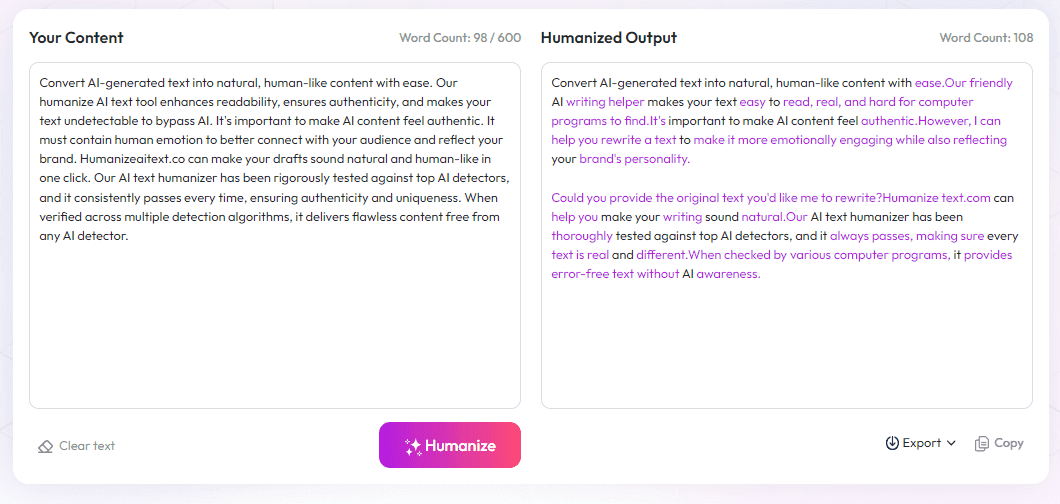Table of Contents
Finding beta readers in 2025 can feel like searching for a needle in a haystack. It’s easy to get overwhelmed by all the choices and wonder where to even start. But don't worry, if you keep reading, I’ll share simple steps that can make the process easier and actually fun.
Stick with me, and you'll learn how to connect with the right people who will give honest feedback on your work. These tips will help you build a little squad of trusted readers to help shape your story and boost your confidence.
In this short guide, I’ll break down exactly where and how to find your beta readers in 2025, so you can focus on writing while I help you find your crowd.
Key Takeaways
Key Takeaways
- Find beta readers by joining online writing communities, forums, and social media groups focused on writing and your genre. Be clear about what feedback you want and engage actively to build trust.
- Use hashtags like #betareader and participate in groups on Facebook, Instagram, and Reddit to connect with interested readers who enjoy your style.
- Reach out to fellow authors and writing groups for recommendations or to swap beta reading, creating mutually beneficial relationships.
- Paid beta reading services are available but most feedback in 2025 is unpaid. Paying can give quicker, detailed input, especially for tight deadlines.
- Build long-term relationships with beta readers through appreciation, regular updates, and reciprocal feedback, making future collaborations easier.
- Focus on quality over quantity. Look for readers familiar with your genre who provide honest, helpful comments. Clear instructions help get the best feedback.

Finding beta readers in 2025 is all about connecting with the right people who can give honest, constructive feedback on your manuscript. The first step is to tap into online communities where writers gather—places like writing platforms, social media groups, and forums are treasure troves for discovering eager beta readers.
Start by joining popular writing websites such as how to be a beta reader and communities like Wattpad, Scribophile, or Radish, where many readers and writers share feedback voluntarily. These platforms often have dedicated spaces or threads for beta reader requests.
Next, look into social media. Facebook groups and Instagram threads are bustling with authors looking for feedback partners. Search for hashtags like #betareader, #writingcommunity, or #amwriting—these often lead to lively groups where you can both offer and find feedback opportunities.
Another powerful move is leveraging author networks. Many writers have email newsletters or websites where they recruit beta readers—reaching out through these channels can be very effective. Authors are often happy to recommend trusted readers or accept referrals, so don’t hesitate to ask your fellow writers.
Paid options are growing, but most beta reading in 2025 remains unpaid, especially for early drafts or indie authors. If you’re willing to compensate, platforms like Fiverr and Goodreads have dedicated beta reading services. Paying for thorough, quick feedback can be worth it—experienced beta readers might charge $0.01 to $0.03 per word, and they sometimes earn around $19.75 an hour in the US.
Getting feedback from trusted readers—whether friends, fellow writers, or paid professionals—can dramatically improve your manuscript. Remember, the key is to be specific about what kind of feedback you want, whether it’s plot consistency, character development, or technical editing. Once you’ve built a network, maintaining good relationships is essential because finding quality beta readers is as much about trust as it is about accessibility.

How to Find Beta Readers Through Writing Communities and Forums
Joining writing communities and forums is a great way to find passionate beta readers who are genuinely interested in your genre or niche. Start by participating actively in platforms like Wattpad or Scribophile, where members often exchange feedback voluntarily. Look for dedicated threads or groups specifically aimed at beta reader requests, and don’t be shy about posting clear, concise descriptions of your project and what kind of feedback you’re seeking. Engaging regularly helps build trust, so you’re more likely to attract reliable readers. Consider offering feedback to others as well—most communities operate on mutual support, which boosts your chances of finding committed beta readers. Explore niche forums related to your book’s genre, like romance, sci-fi, or mystery, because readers in those groups tend to be highly invested. Remember to clarify your expectations upfront, whether you want notes on plot, characters, pacing, or technical editing, so everyone is on the same page. Also, look into specialized platforms like how to be a beta reader to understand what effective feedback looks like. Building relationships in these spaces can also lead to ongoing feedback loops, making the process smoother for future projects.
Utilizing Social Media to Find Beta Readers Effectively
Social media is a goldmine for connecting with potential beta readers, especially on platforms like Facebook and Instagram. Join targeted Facebook groups, such as those dedicated to writers or specific genres. Use hashtags like #betareader, #writingcommunity, or #amwriting to discover trending conversations and active threads recruiting feedback partners. Hosting your own posts—detailing your project, genre, and what kind of feedback you're after—can attract interested readers. Instagram features like stories and reels are also useful for sharing updates and calling for beta readers casually. Follow book bloggers, reviewers, and other authors—they often have engaged audiences who are open to providing input. Don’t forget to participate in live sessions or comment thoughtfully on others’ posts; building rapport increases your chances of finding dedicated beta readers. Be transparent about what you’re offering, whether it’s free feedback or a small reward, and set clear deadlines to keep the process productive. You can also explore niche groups like Reddit’s r/betareaders for a more direct and straightforward approach. The key is to be genuine and specific—your ideal beta readers are those who understand your genre and vibe with your style.
How to Reach Out to Authors and Writing Groups for Beta Reading Opportunities
Many authors and writing groups are happy to share beta reader connections because it benefits everyone: the author gets feedback, and the reader gains a deeper understanding of storytelling. Start by reaching out via email newsletters—subscribe to authors’ mailing lists and send polite, personalized messages explaining your project and asking if they can recommend any trusted beta readers. Join local or online writing groups on platforms like Facebook or Discord; these communities often have channels or threads dedicated to beta exchange. When approaching authors directly, offer to reciprocate by beta reading their work; this creates a win-win scenario. If you’re part of a writing group, suggest organizing mutual feedback swaps where each person commits to reading a certain number of manuscripts. Remember to keep your messages professional but friendly—highlight what makes your project interesting and specify what kind of input you need. Many established authors have contacts or networks they can share when they hear someone looking for beta readers. Making genuine connections within these circles often leads to long-term collaborations and valuable insights.
Understanding the Growing Role of Paid Beta Reading Services in 2025
Paid beta reading has become more common, especially for authors seeking high-quality, fast feedback or specialized expertise. These services often charge between $0.01 and $0.03 per word, depending on the depth of feedback and the reader’s experience. Some editors and experienced beta readers work through platforms like Fiverr or specialized websites, offering structured reviews that cover plot, character development, pacing, and technical details. The appeal of paid services is clear—authors get quicker turnaround times and more thorough insights, which can make a big difference before publishing. According to recent data, many beta readers earn around $19.75 per hour, but some charge per project, especially for complex or lengthy manuscripts. While most beta reading remains unpaid, investing in paid feedback can be a smart move if you’re aiming for a polished final draft. Look for reviews and ratings of these services to find reputable providers. Remember, a good paid beta reader can act as a bridge between feedback quality and your publishing timeline, especially if you’re working under tight deadlines or targeting professional standards.
Strategies for Building Long-Term Beta Reader Relationships
Creating lasting relationships with beta readers can streamline your writing process and lead to more honest feedback over time. Start by expressing genuine appreciation when someone gives you thoughtful comments—consider sending a thank-you note or small token of appreciation. Keep your beta readers updated on your projects; sharing progress and upcoming releases makes them feel involved and valued. Offer reciprocity: read their work and provide feedback; mutual exchange builds trust and commitment. Set clear expectations from the beginning, such as turnaround times and specific focus areas, so everyone knows what to expect. Maintain regular communication—send periodic check-ins or newsletters to keep your network warm. Highlight special milestones, like completing a draft or preparing for publication, and invite them to be part of your journey. Over time, as you gather more feedback and improve your manuscripts, your beta readers will become invested collaborators rather than just occasional reviewers. This ongoing rapport transforms a casual feedback relationship into a supportive writing partnership that benefits both sides.
Final Tips for Finding Reliable Beta Readers in 2025
When you’re hunting for solid beta readers, remember that quality beats quantity. Look for readers who are familiar with your genre and have a reputation for honest, constructive criticism. Be transparent about what you want—provide a feedback form or specific questions to guide them. Don’t be afraid to ask friends or fellow writers, but always clarify expectations upfront to avoid misunderstandings. Experiment with different sources: online communities, social media, author networks, paid services, or local writing groups. Keep track of who responds promptly and provides valuable input; you can build your go-to list over time. Always be respectful of their time and effort; a small thank-you gift or acknowledgment in your book credits can foster goodwill. Ultimately, successful beta reading relationships come down to clear communication and mutual respect. If you focus on these principles, you’ll find dedicated readers who help make your manuscript the best it can be.
FAQs
Start by joining writing groups online, using social media platforms, and participating in forums dedicated to writers. Reach out to active members who share similar genres and ask if they'd be interested in providing feedback on your manuscript.
Use social media, writing communities, and online platforms like Goodreads or Patreon to find passionate readers. Attending writing events or workshops can also connect you with people interested in providing honest feedback on your work.
Be clear about what kind of feedback you're seeking and how much time you expect them to spend. Offer a short summary of your book, and politely ask if they're interested in reading and providing input on your manuscript.



